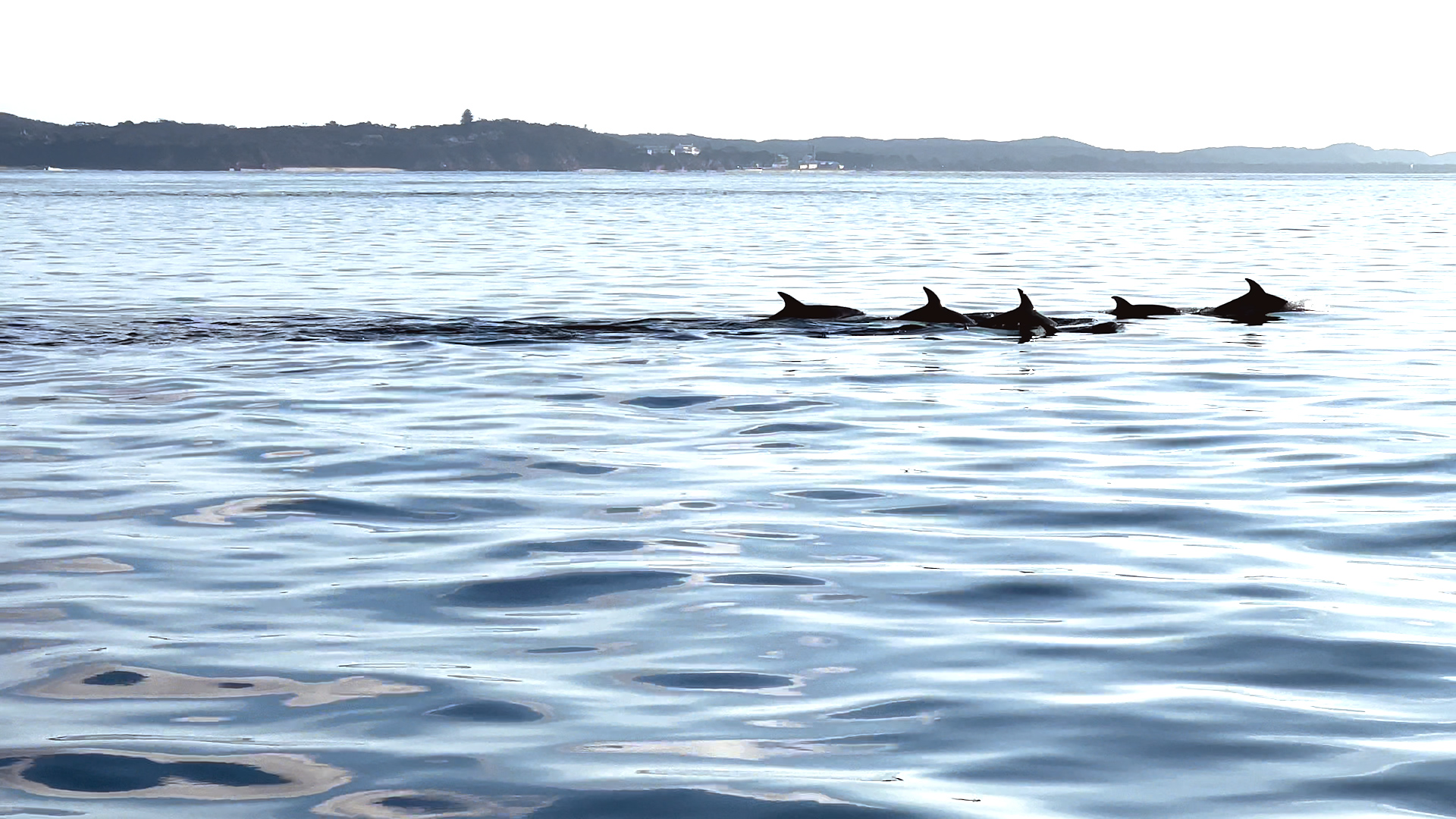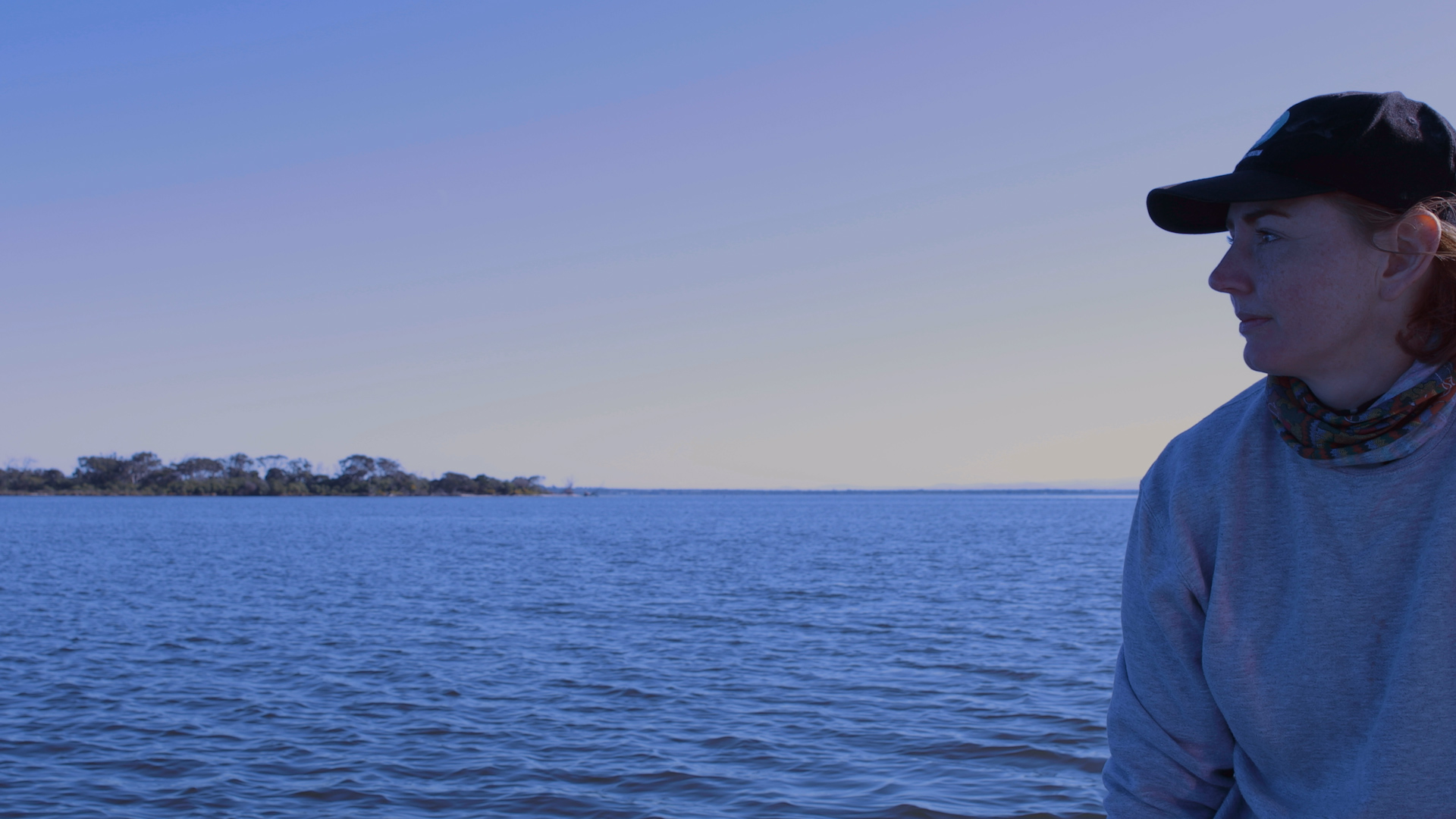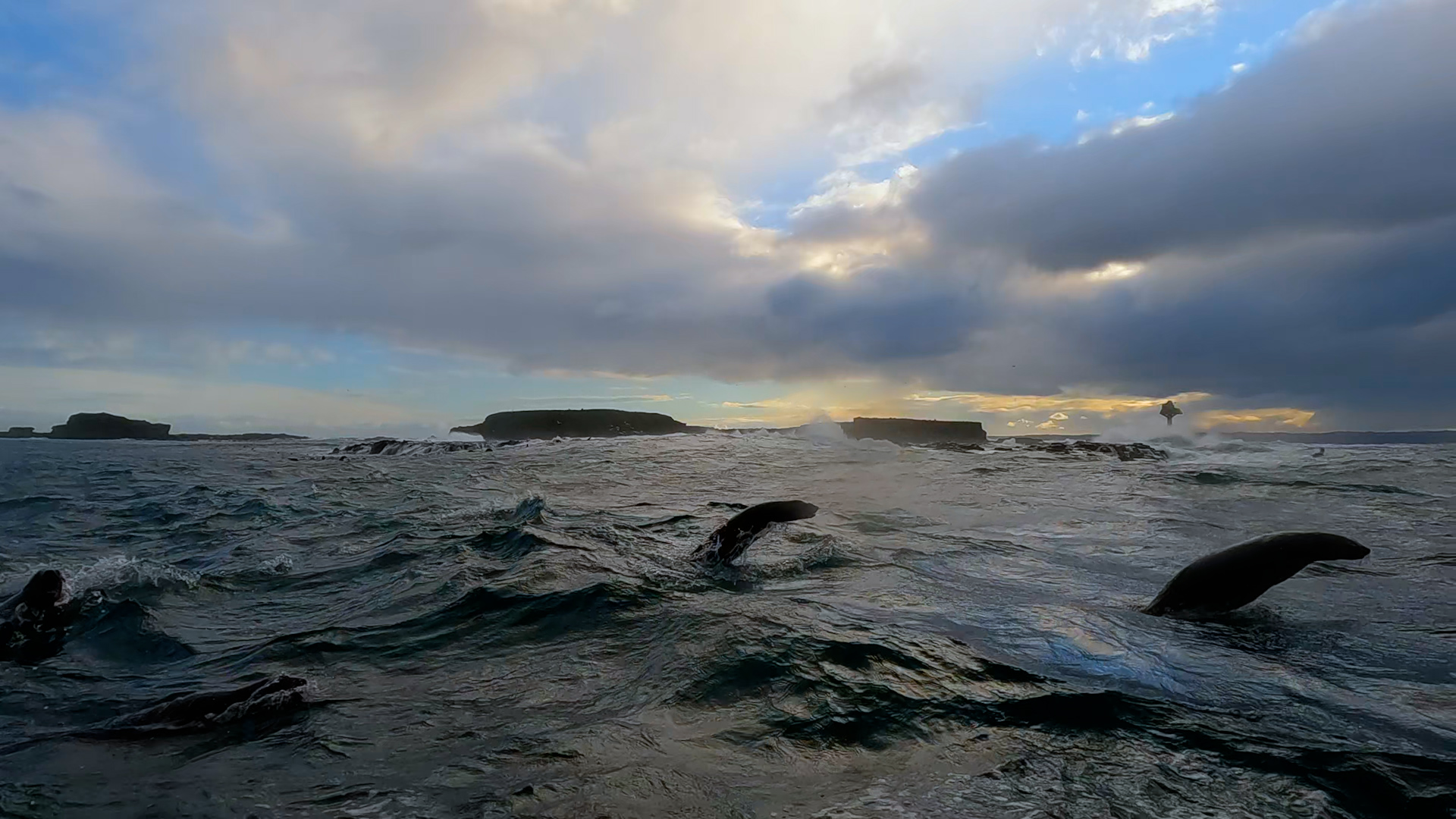FNR alumna’s wildlife documentary “Dolphin Dilemma” premieres at Cannes Film Festival
Forestry and Natural Resources (FNR) alumna Olivia Andrus-Drennan never expected that an unpaid internship would turn into an opportunity to further her career as a science communicator and filmmaker, and definitely not an invitation to Cannes Film Festival. And yet last week, that’s exactly where she found herself.
When Andrus-Drennan received her dual degrees in wildlife biology and filmmaking from Purdue in 2015, she was set up for success in graduate school for science and natural history filmmaking. Then, March 2020 threw a pandemic curve ball, and suddenly, no one was making films.
Andrus-Drennan decided to make the most of the unexpected situation by taking on a remote social media internship with The Marine Mammal Center. “I wasn't going to be able to graduate anyway, so I figured I should just work and get more experience,” Andrus-Drennan said.
During the internship, a research paper came out that caught Andrus-Drennan's attention. The paper showed how a changing environment caused a group of dolphins to contract freshwater skin disease. Realizing it would be an interesting topic for her thesis project, Andrus-Drennan got the center’s approval and flew out to California to begin filming.
“I'm always interested in new stories and deep science, but animals call to my heart,” she said.
The project initially moved slowly due to pandemic restrictions. Andrus-Drennan filmed as much footage as possible at The Marine Mammal Center, but she wanted to travel to capture more of the story. While waiting for plans to fall into place for a trip to Alaska, she got an even better opportunity: a chance to go to Australia to visit the dolphins her work was based on.
“All of a sudden, Australia and life just opened up,” Andrus-Drennan said. “I contacted Dr. Kate Robb, who was doing surveying in Australia during the timeframe that I was looking to film. I asked her if I could come with her, and she said absolutely. So I shifted everything to go to Australia, which was an endeavor because I had to do a lot of fundraising. But I couldn't justify not going to see the dolphins in person.”
In Australia, Andrus-Drennan interviewed scientists and researchers and collected footage of dolphins and the environment they call home.
“Whenever I go out, there's no guarantee that I'm going to see any animals,” Andrus-Drennan said. “I’m lucky that the topic I chose was in a beautiful space. I focused on the environment because that is a part of the storytelling, and it draws people in.”
Andrus-Drennan finished “Dolphin Dilemma” for her master’s thesis in December 2022, and, after some more editing, she began submitting it to film festivals this past March. Shortly after, she was contacted about Cannes.
“I applied to a different film festival, and the director of that film festival works for Cannes,” Andrus-Drennan explained. “He saw my film and invited me to talk about Cannes and my film. I just thought, ‘Oh, it's a film festival in Cannes, not the Cannes Film Festival.’ As I'm sitting in our virtual conversation, I asked, ‘Wait, what film festival are you talking about?’ He was like, “Cannes, the big one.’”
Andrus-Drennan laughs looking back at the meeting. “I was blissfully ignorant. I think I would have gone into the meeting more nervous if I knew. The minute I got off the phone, I called my mom and started crying.”
“Dolphin Dilemma” will be shown in the Film Market, or Marché du Film, portion of Cannes, which takes place from May 14–25 this year. Andrus-Drennan is excited that “Dolphin Dilemma” will be one of the few science documentaries, and she looks forward to experiencing the audience's response. “It's always nerve wracking but also exhilarating to watch a real audience watch your work,” Andrus-Drennan said.
After the festival, Andrus-Drennan plans to make “Dolphin Dilemma” available for free on her website, Big Sky Genesis Productions, and her Vimeo page









